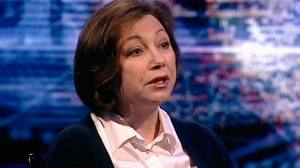 A leading Syrian opposition group based abroad is ready to give money and equipment to rebels in Syria fighting President Bashar al-Assad as they work towards creating an organized command structure, a senior group member said on Friday.
A leading Syrian opposition group based abroad is ready to give money and equipment to rebels in Syria fighting President Bashar al-Assad as they work towards creating an organized command structure, a senior group member said on Friday.
After months of distant relations, the Syrian National Council (SNC) and rebel Free Syria Army (FSA) struck a deal earlier this month to reorganize loosely-structured units fighting under the FSA umbrella.
Council spokeswoman Bassma Kodmani said that with defections from Assad’s forces increasing, the uprising that began with street protests 10 months ago had taken on irreversible military dimensions and it was now the SNC’s duty to assist the rebels.
“The SNC is now mapping who the groups are on the ground in Syria and Turkey,” she said. “We have military experts, former Syrian military, who are mapping where they are and linking them into some form of command chain.”
The SNC will not help provide arms since it opposes attacks on individual targets or buildings, but will contribute funds or find financiers to keep the FSA afloat, Kodmani said, without specifying how much money would be offered.
Kodmani was speaking to reporters in Paris, where she is a lecturer and runs the Arab Reform Initiative think-tank. The SNC has no single base, but has most often held talks and meetings in Paris and Istanbul.
She said the rebels numbered between 20,000 and 30,000 in Syria and about 300 in neighboring Turkey. “They need communications equipment, bullet-proof vests and non-offensive equipment to make sure they are integrated with each other. If they are left isolated, they will transform into militias.”
INTERNAL REBEL TENSIONS
Kodmani said one of the main problems in making the FSA a coherent force would be managing tensions between those that had defected early on in the uprising such as Colonel Riad al-Asaad and more senior officers such as General Mostafa al-Sheikh, who defected this month. She said another high-ranking general had also defected to Turkey but his identity had yet to be revealed.
“It’s necessary to make sure the FSA’s action can be organized with a strategic objective,” said Kodmani, one of several candidates in an SNC leadership contest to be decided next month.
“The main weakness is that it has no territory. There is no Benghazi, but there are pockets,” she said, referring to last year’s Libyan insurgency that swept to Tripoli, toppling dictator Muammar Gaddafi, from a rebel bastion in the east.
Fighting edged closer to Damascus this week. Clashes between rebels and security forces in the Damascus suburb of Douma raged throughout Thursday, and violence erupted anew in Homs on Friday after reports of a sectarian massacre.
Kodmani said the Syrian government was losing its grip in some regions and would struggle to reassert it in cities such as Hama and Homs, twin pillars of the anti-Assad uprising.
The U.N. Security Council was to meet on Friday to weigh the next move on Syria with a Western-Arab draft resolution to be circulated among members for a vote foreseen next week.
The draft, obtained by Reuters, calls for a “political transition” but not for U.N. sanctions against Damascus, something Russia has said it would not support.
“We need a serious Security Council resolution that says the council looks to blame the regime and then sets a period of time after which it will take other measures,” Kodmani said.
She said the SNC had asked U.N. Secretary General Ban Ki Moon to allow it to represent the Syrian people at the talks.
“I think the Arab League has the clout to convince the Russians to change their position,” she said.
Reuters

Leave a Reply
You must be logged in to post a comment.